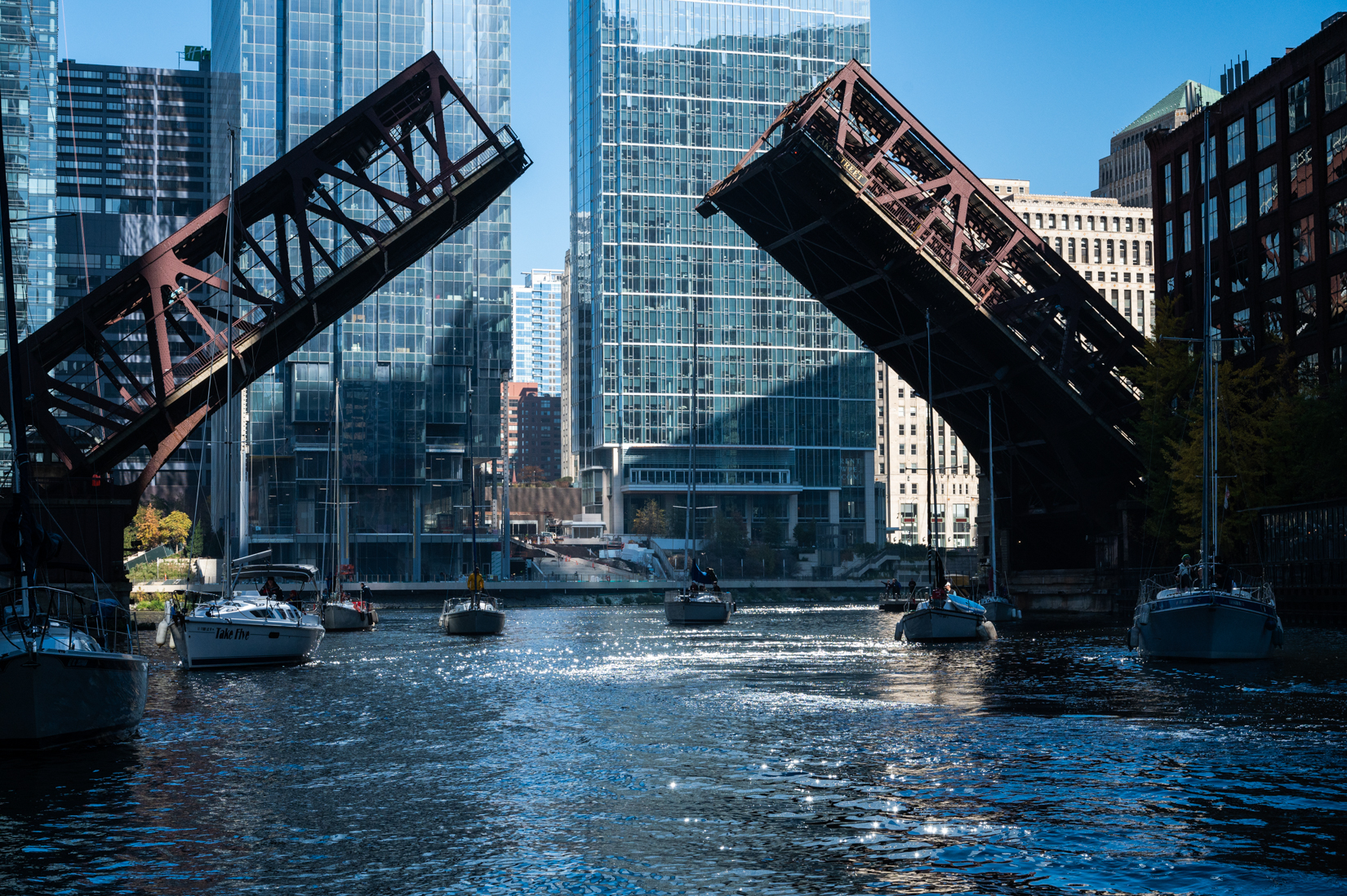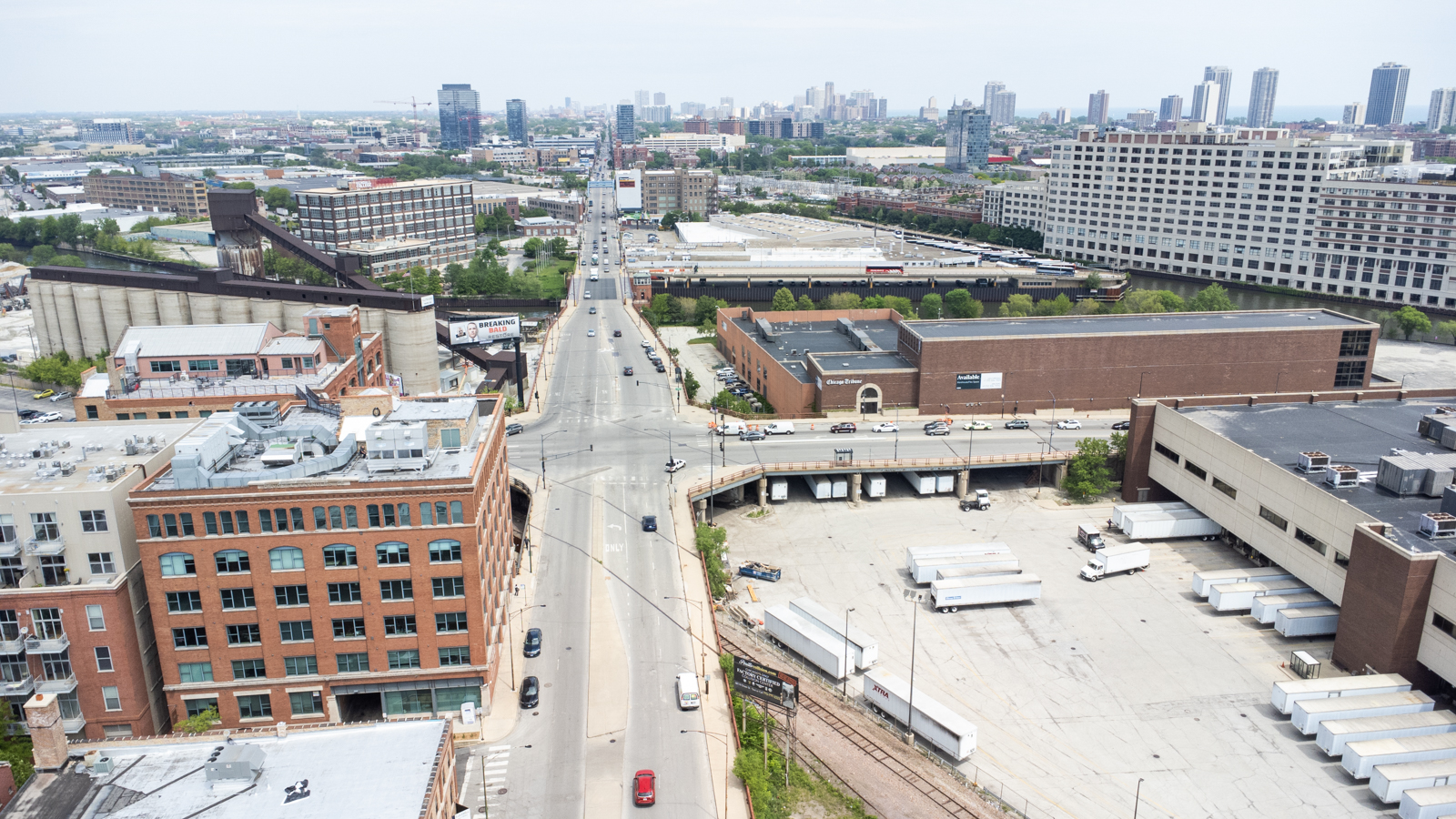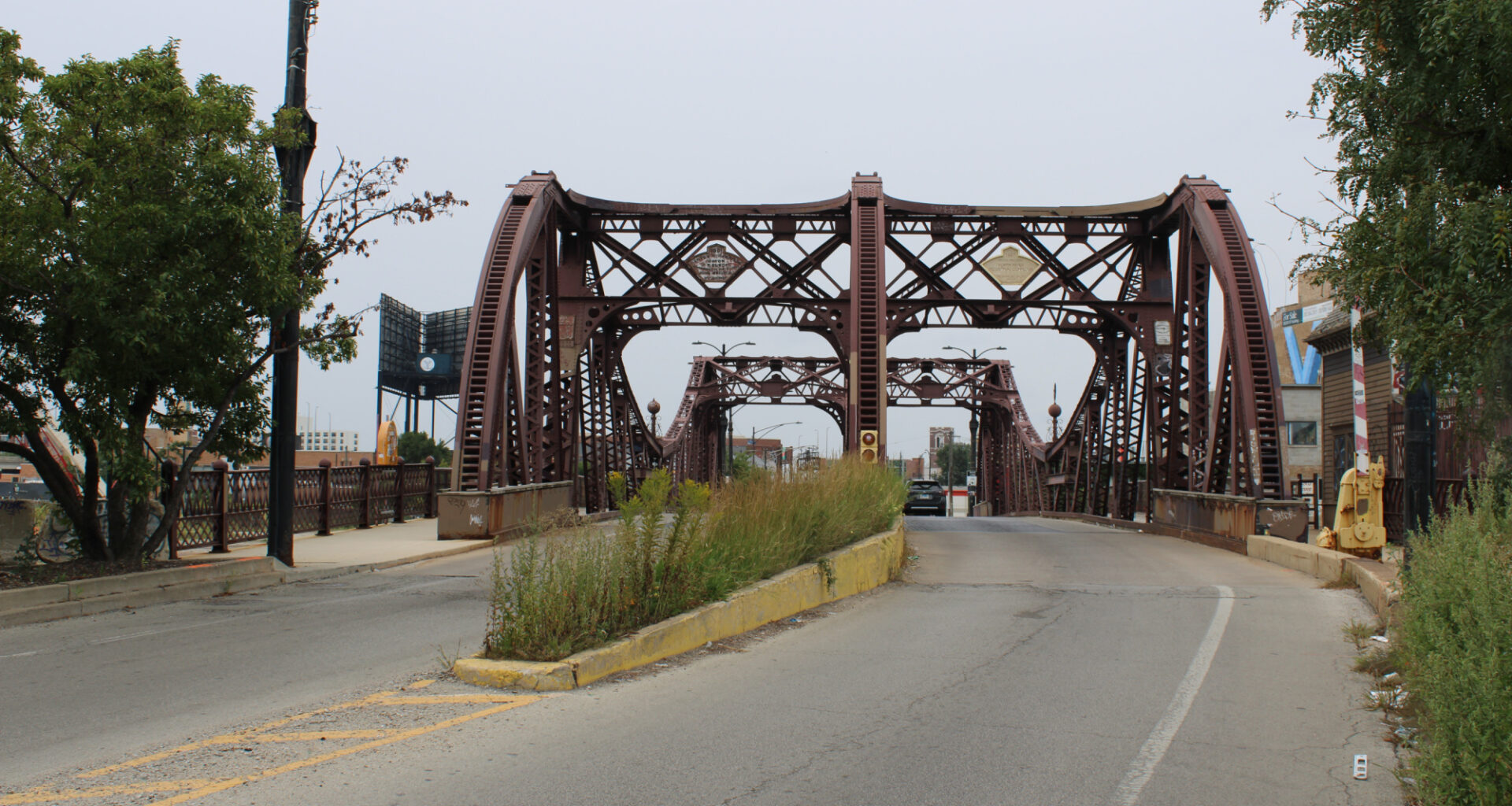CITY HALL — Alderpeople on Wednesday criticized Chicago’s transportation department for temporarily closing several bridges at the same time this year, which has led to traffic backups and headaches Downtown and on the North Side.
Four bridges over the Chicago River — along Lake Street, State Street, Chicago Avenue and Cortland Street — are currently shut down to car traffic while the Chicago Department of Transportation completes repairs.
The State Street bridge, which closed in April, is slated to reopen later this year, according to a city press release. The Chicago, Lake and Cortland bridges — each of them popular east-west routes used to get across the city — were closed for repairs this summer and fall.
Those projects are expected to last from late 2026 until 2028.
The transportation department has said such rehabilitation projects are necessary to ensure the city’s bridges, some of which are more than a century old, are safe to use.
But speaking during a hearing Wednesday dedicated to reviewing CDOT’s proposed 2026 budget, some alderpeople questioned the logic of doing the repairs of four bridges at the same time — which they said has led to more traffic and widespread frustration from their constituents.
One major chokepoint has been Grand Avenue over the river, which many drivers are now using as their route in and out of Downtown, Ald. Brendan Reilly (42nd) said. Existing utility projects in the area have also increased slowdowns, he added.
“I think we can all agree that you created quite a bit of chaos in rush hours,” Reilly said. “I’ve received literally hundreds of phone calls, people asking, ‘Whose great idea was this?’ And I can’t defend it, because it doesn’t make any sense.”
“It’s a clusterf—,” Reilly told reporters after his comments at the hearing.
Acting transportation department Commissioner Craig Turner on Wednesday defended the city’s decision process to undertake the bridge repairs, which he stressed as vital to maintaining safety.
Turner took over the department this summer after previous commissioner Tom Carney resigned.
“These bridges are currently carrying more [than] what they were designed to carry,” Turner said. “We’re being proactive, and the time is right to get it [done] because we have the plans done, the finances and it’s time to get it done. And there’s no easy way to repair a bridge.”
 The Lake Street bridge is lifted as sailboats make a trip down the Chicago River to their winter storage on Oct. 29, 2022. Credit: Colin Boyle/Block Club Chicago
The Lake Street bridge is lifted as sailboats make a trip down the Chicago River to their winter storage on Oct. 29, 2022. Credit: Colin Boyle/Block Club Chicago
Other alderpeople also questioned the decision to close the bridges at the same time, albeit with less gusto than Reilly.
Ald. Walter Redmond Burnett (27th), whose ward is affected by several of the closures, said “it feels like a couple of these projects came out of nowhere,” and pushed for better communication from CDOT.
On the North Side, the Cortland bridge closure has caused a “really difficult situation in Lincoln Park,” Ald. Timmy Knudsen (43rd) said, leading to many complaints from neighbors.
And Ald. Bill Conway (34th) said he believed his ward, which includes parts of Downtown and the West Loop, was probably the most affected of any in the city by the temporary closures.
“Was there a proper lack of planning in years past, that predates your time, that made these not get staggered?” Conway asked Turner. “That’s the question I haven’t gotten a handle on.”
Turner replied by reiterating that the repairs are necessary and said delaying the projects could drive expenses up.
“The longer you put it off, the more chances you risk of these bridges failing, and you have to do an emergency repair and expedite a lot of things which runs the cost up,” he said.
The acting commissioner did pledge better communication with ward offices about all infrastructure projects, and he told Burnett he would work with him and Reilly to “see if we can eliminate or reduce the number of stress points that people are experiencing.”
 The intersection of Halsted Street and Chicago Avenue, next to the proposed site of the Bally’s casino in the River West neighborhood at the Chicago Tribune’s printing plant on May 24, 2022. Credit: Colin Boyle/Block Club Chicago
The intersection of Halsted Street and Chicago Avenue, next to the proposed site of the Bally’s casino in the River West neighborhood at the Chicago Tribune’s printing plant on May 24, 2022. Credit: Colin Boyle/Block Club Chicago
Wednesday’s hearing took place on the second day of departmental hearings expected to last through mid-November as alderpeople vet Mayor Brandon Johnson’s 2026 proposed budget.
Johnson’s spending plan calls for a reinstated corporate head tax, a tax on social media companies and a hiring freeze, among other measures, to close a $1.19 billion budget hole.
The Chicago Department of Transportation — one of the most publicly visible city departments that oversees everything from bike lakes to bridge maintenance to speed cameras — is expected to cut almost 100 currently vacant positions in 2026, Turner said.
Turner and other department leaders talked only briefly on Wednesday about Chicago’s speed camera program, which installed 50 new cameras in 2025 — bringing the city’s total to 212.
The cameras added last year were a last-minute addition to the 2025 city budget to pay for Police Department positions mandated by the federal consent decree, the Tribune reported.
Asked by Ald. Matt O’Shea (19th) if the department plans to add new cameras in 2026, Turner said, “Not at this time.”
Listen to the Block Club Chicago podcast:
